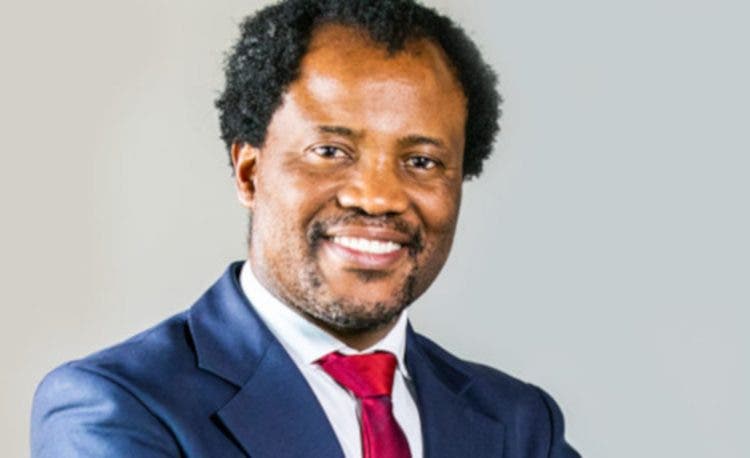AESA PROGRAMMES
- Building R&D Infrastructure
- Developing Excellence in Leadership, Training and Science in Africa (DELTAS Africa)
- Human Heredity and Health in Africa (H3Africa)
- Africa’s Scientific Priorities (ASP)
- Innovation & Entrepreneurship
- Grand Challenges Africa
- Grand Challenges Innovation Network
- Rising Research Leaders/Post-Docs
- AESA RISE Postdoctoral Fellowship Programme
- African Postdoctoral Training Initiative (APTI)
- Climate Impact Research Capacity and Leadership Enhancement (CIRCLE)
- Climate Research for Development (CR4D)
- Future Leaders – African Independent Research (FLAIR)
- Critical Gaps In Science
- Clinical Trials Community (CTC)
- Community & Public Engagement
- Mobility Schemes: Africa-India Mobility Fund
- Mobility Schemes: Science and Language Mobility Scheme Africa
- Research Management Programme in Africa (ReMPro Africa)
- Science Communication/Africa Science Desk (ASD)
- Financial Governance: Global Grant Community (GGC)
- AAS Open Research
- CARI Programmes
- Evidence Leaders Africa (ELA)

News
AAS Fellow Prof Zeblon Vilakazi, appointed as Wits vice-chancellor

171
AAS Fellow Prof Zeblon Vilakazi, appointed as Wits vice-chancellor
The Council of the University of the Witwatersrand has announced the appointment of Professor Zeblon Vilakazi as the Vice-Chancellor and Principal of the University from 1 January 2021. He takes the reins from Professor Adam Habib who leaves Wits at the end of the year to lead the School of Oriental and African Studies in London.
Professor Vilakazi is the current Vice-Principal and Deputy Vice-Chancellor for Research and Postgraduate Studies at Wits. Under his leadership, Wits’ research output has more than doubled, with the University increasingly producing more research with impact. He is widely published (325 papers) and highly cited with an h-index of 70.
“Professor Zeblon Vilakazi is the epitome of a world-class researcher who is globally recognised for his scientific work, and for his contribution towards developing higher education in Africa. He is a truly talented individual who is an inspiring exemplar for all Africans,” says Mr Isaac Shongwe, Chairperson of the Wits Council, the highest decision-making body of the University. “We are confident that Professor Vilakazi will ably lead Wits to its centenary in 2022 and beyond, steward a new vision for the academy, and reinvigorate the academic project in a higher education context that is rapidly changing.”
No stranger to technology and the digital world, Professor Vilakazi chairs South Africa’s National Quantum Computing Working Committee which seeks to develop a Framework for Quantum Computing and Quantum Technology driven research and innovation in South Africa. He is also instrumental in ensuring that Wits and other African universities have access to quantum computing networks.
“It is an honour for me to have been appointed to this prestigious position,” says Professor Vilakazi. “I am committed to working with my esteemed colleagues, fellow academics and smart, savvy students to create new knowledge, and to develop the high level skills required to move South Africa, and our economy forward. We also need to continue to develop the originators, innovators and critical thinkers who can help us solve the problems of the 21st Century.”
Professor Vilakazi is globally recognised for his expert knowledge in physics and nuclear research. He was instrumental in establishing South Africa's first experimental high-energy physics research group at CERN focusing on the development of the High-level Trigger for the CERN-ALICE experiment at the Large Hadron Collider at the European Organization for Nuclear Research (CERN). He also served as a visiting scientist at the Atomic Energy Commission and Alternative Energy in Saclay, France.
Brief Biography of Professor Zeblon Vilakazi
- Professor Zeblon Zenzele Vilakazi joined Wits in January 2014 as the Deputy Vice-Chancellor: Research and Postgraduate Affairs and was promoted to the position of Vice-Principal in April 2020.
- He has served as the Group Executive for Research and Development at the Nuclear Energy Corporation of South Africa (NECSA) and as the Director of iThemba LABS.
- Born in Katlehong, a township located on the East Rand, Professor Vilakazi obtained his PhD from Wits 1998.
- He was one of the first students from Africa to conduct PhD research at the European Centre for Nuclear Research (CERN) in Geneva, Switzerland. This was followed by a National Research Foundation postdoctoral fellowship at CERN.
- Upon his return to South Africa he lectured at the University of Cape Town (UCT), where he was instrumental in establishing South Africa’s first experimental high-energy physics research group focusing on the development of the High-level Trigger for the CERN-ALICE experiment at the Large Hadron Collider.
- Vilakazi has been instrumental in developing key local and global partnerships that have cemented the University’s position as a leader in innovation. This includes ensuring that Wits and other African universities can access to quantum computing facilities.
- Under his leadership, Vilakazi enabled the University to achieve its strategic objective of creating an enabling environment for a research-intensive and postgraduate-oriented university. This includes achieving one of the fastest growth rates in subsidy research outputs and the doubling of research income. He increased the number of postgraduate students to realise the University’s vision of becoming a research-intensive African university.
- His international profile opened opportunities to serve as a visiting scientist at the Atomic Energy Commission and Alternative Energy in Saclay, France. Professor Vilakazi served as chairperson of the International Atomic Energy Agency’s Standing Advisory Committee on Nuclear Applications from 2009 to 2011.
- He also served as a member of the International Union of Pure and Applied Physics’ Working Group for Nuclear Physics.
- In 2010, Professor Vilakazi was nominated by the World Economic Forum as a Young Global Leader.
- He is a Fellow of the African Academy of Sciences.
- Professor Vilakazi is currently a member of the Programme Advisory Committee for Nuclear Physics at the Joint Institute for Nuclear Research in Russia.
This article was originally published on the Wits University website